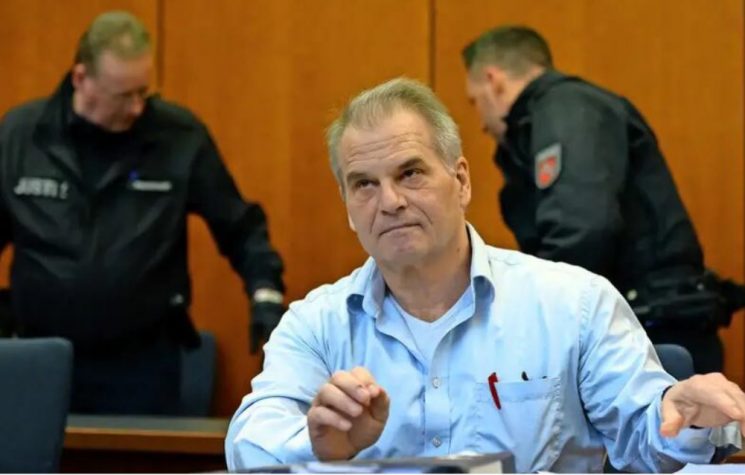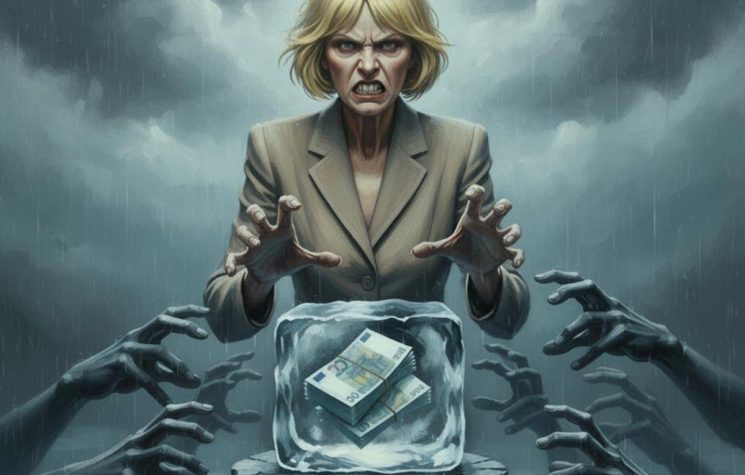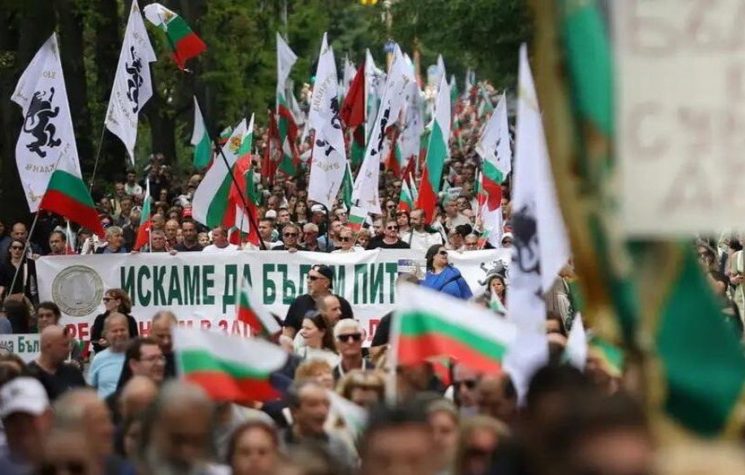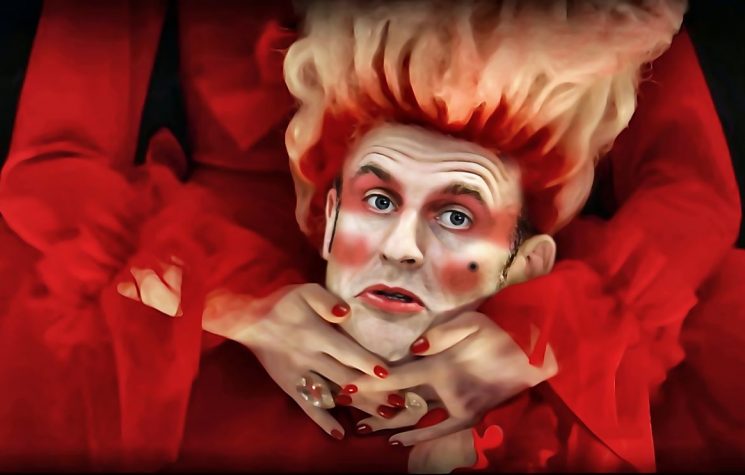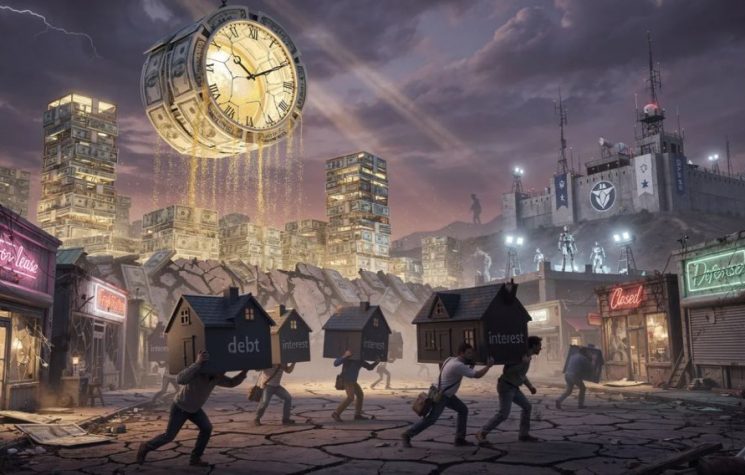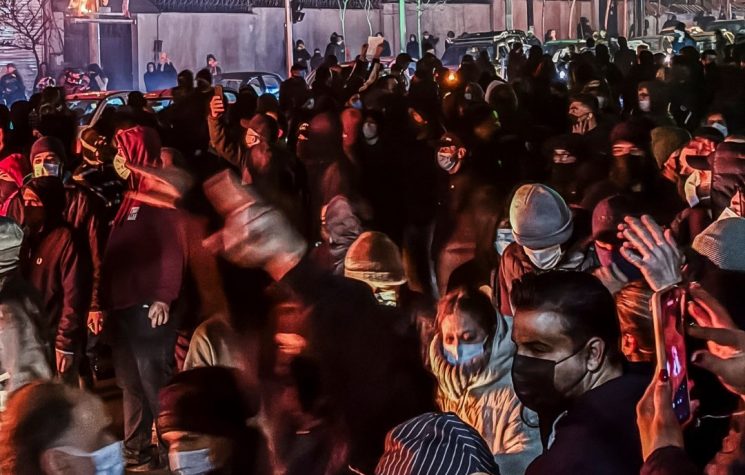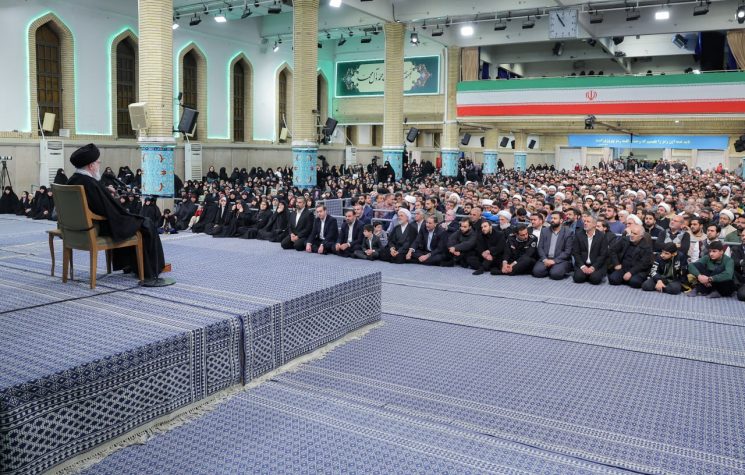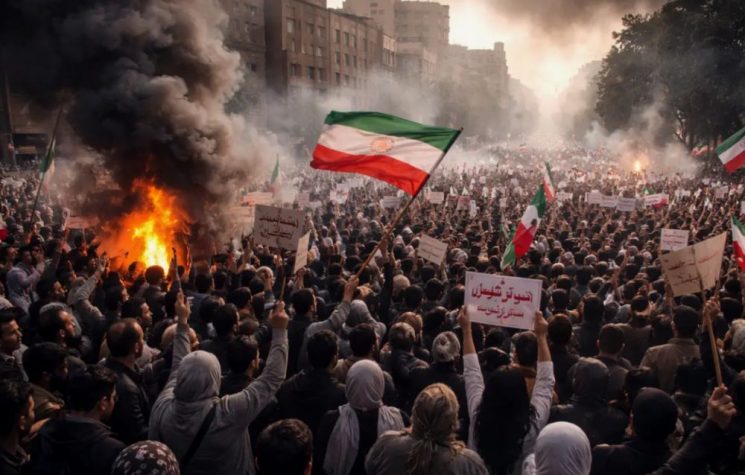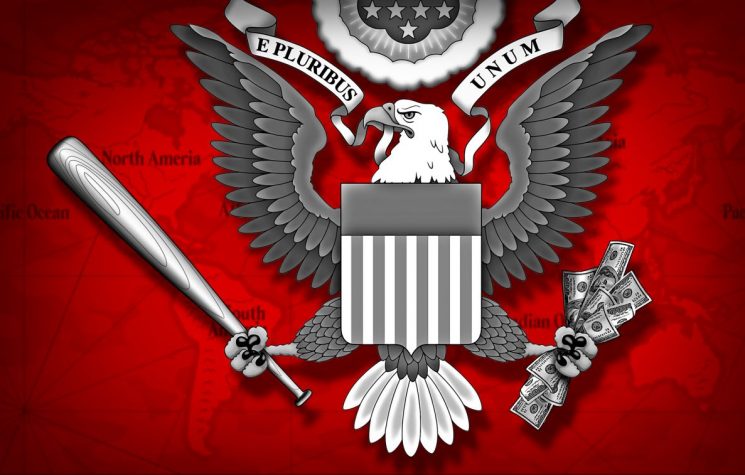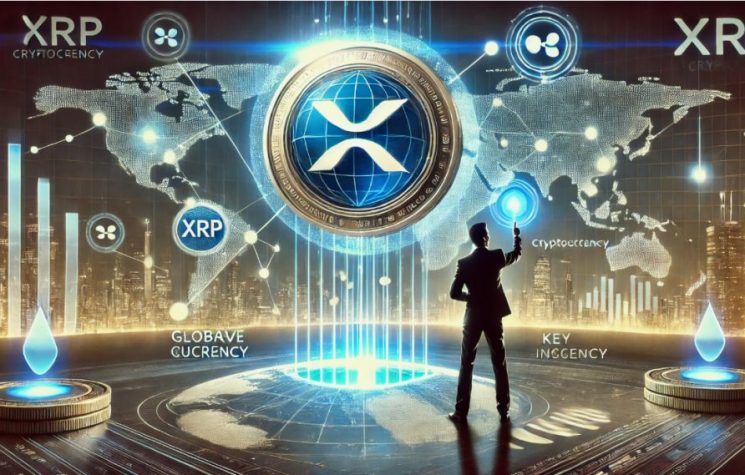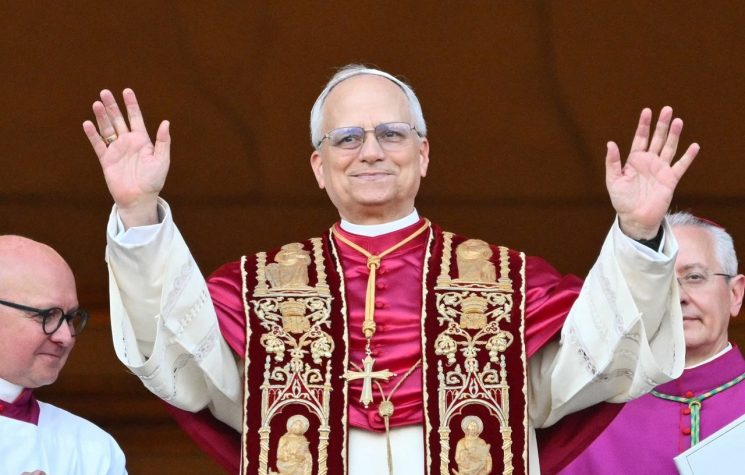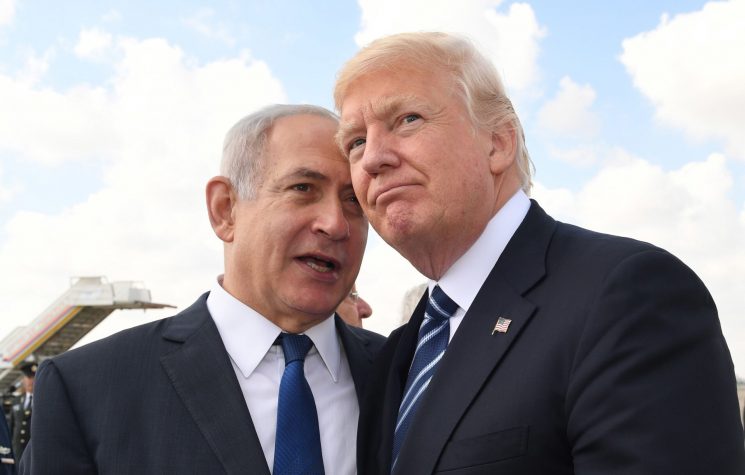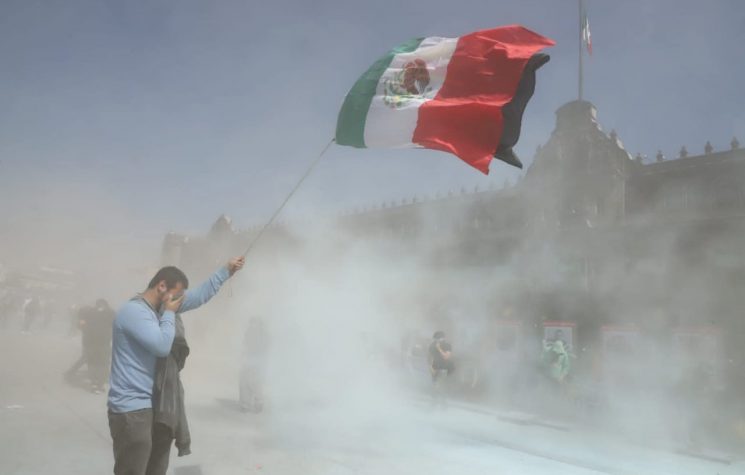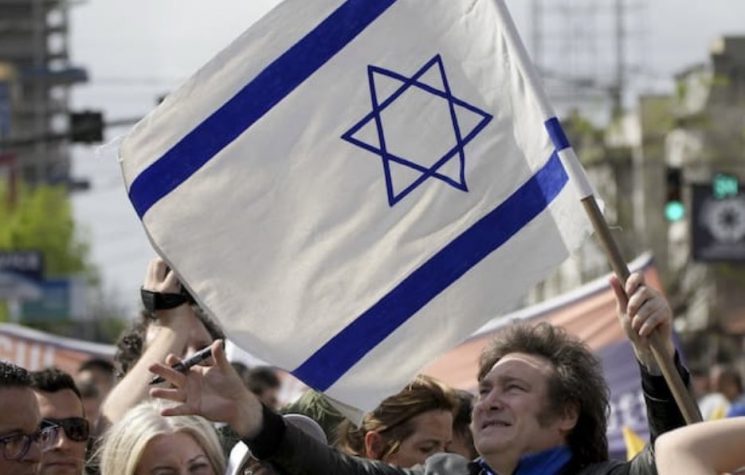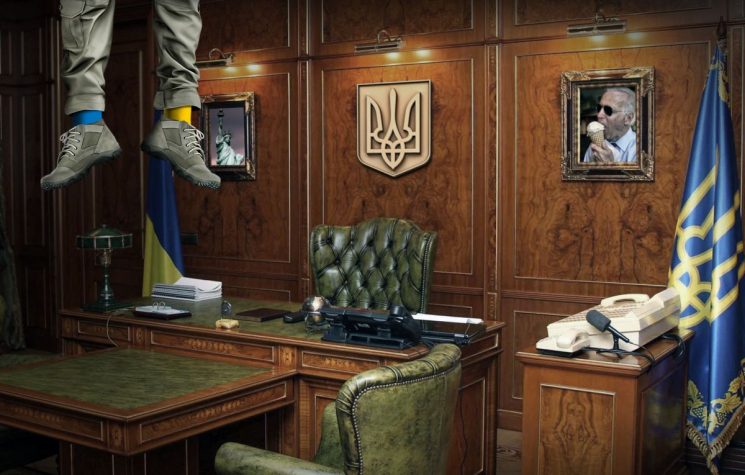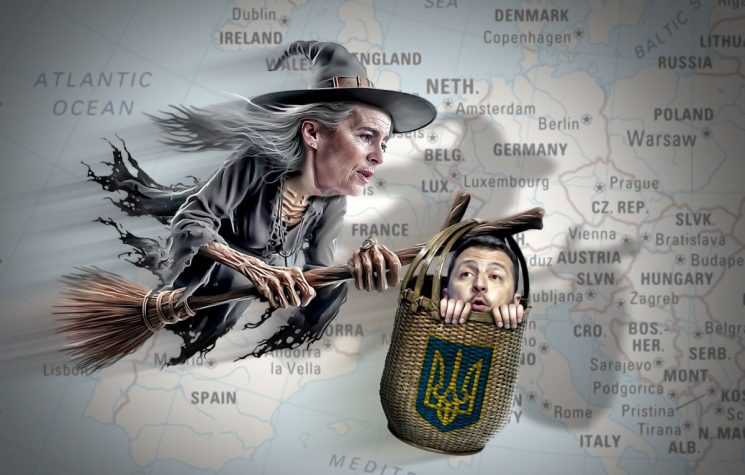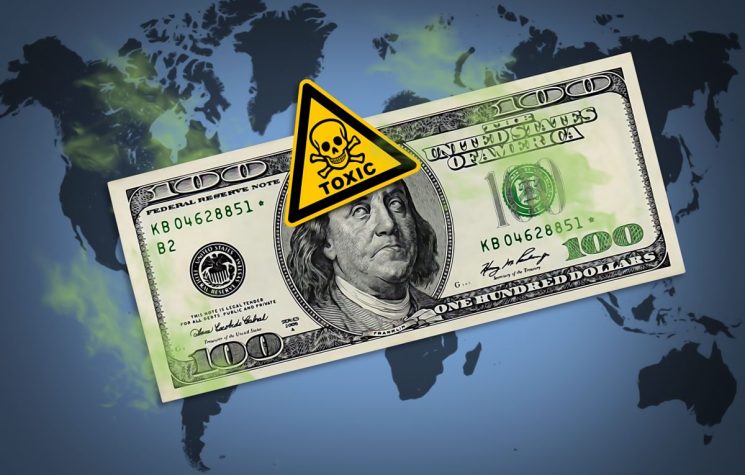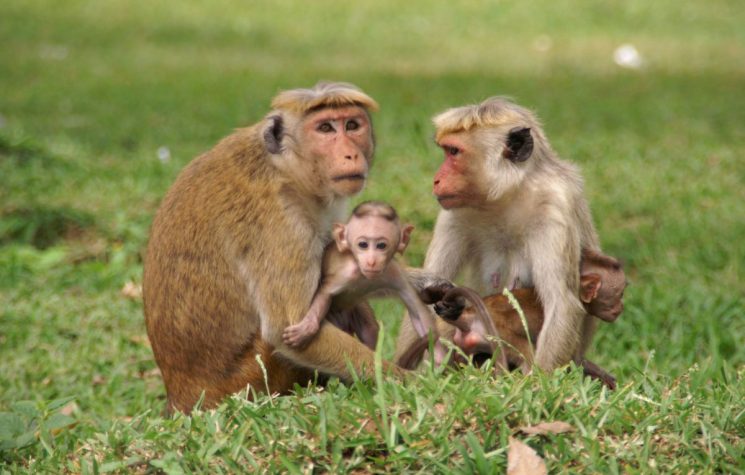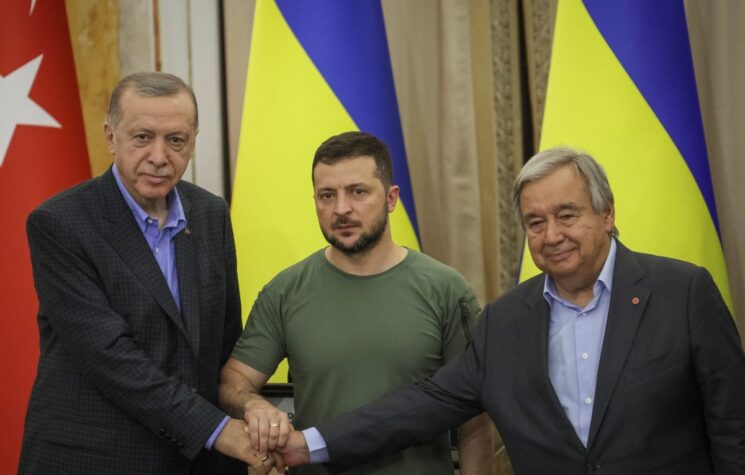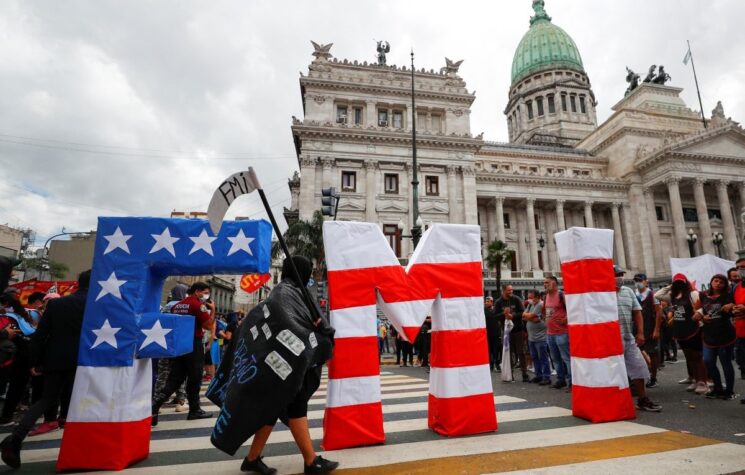The West is facing a systematic crisis both economically and socially and it appears to have no solutions but more money printing and war. Neither of which will help.
While most of the world’s attention is focused on the Ukraine, there are events happening in Sri Lanka that should alarm everyone. Sri Lanka is a small independent island nation off the southern tip of India. Relatively insignificant in the global context it may prove to be the “canary in the coal mine” that portends a wider global and economic crisis. A long corrupted and badly run country, it has announced that it can no longer meet its international debt obligations. Like so many others, Sri Lanka was devastated by Covid, without tourism and trade its lacks the foreign currency essential to pay its debt. With some $56 billion in foreign debt it has been forced to return to the IMF to seek further loans to pay for imports of food, energy and medicines.
Chaos and riots are widespread throughout the country and on Monday Prime Minister Majinda Rajapaska stepped down. The resignation failed to quell the riots and protestors are also demanding the President, Gotabaya Rajapaska, the former P.M.’s brother also step down. On Tuesday 10th, the Government ordered troops to shoot anyone looting public property. The Government also ordered thousands of Army, Navy and Air Force to patrol the streets of Colombo, the capital. Eight people are reported dead and more than two hundred wounded. Houses belonging to the Rajapaskas and other Ministers were torched. It is not the country’s first economic crisis, but is by far its worst and the long beleaguered people have reached breaking point. There are shortages of everything, inflation is rampant and the healthcare system has broken down. Enter the IMF.
The IMF as always has a plan for such situations. Structural reform, usually involving feeding money in so that the interest on the debt can continue to be serviced although never repaid. It will also involve cutting any Government spending on essential services and the privatising of any remaining public assets. As we may imagine none of these measures will be popular with the people who as always will suffer the most. Not that the concerns of the ordinary people will worry IMF or the investor class it represents. Debt must always be serviced before the people eat. These are the rules of the “rules-based order”.
If the economic and societal breakdown occurring in Sri Lanka was just an isolated problem then the West may just look on, as it has done many times in the past, and regard it as just more third world poverty porn. However an isolated incident it is not, it is just the first domino to fall in what will be a much wider global crisis. The World Bank has warned that there are more than sixty other countries in a similarly perilous situation as Sri Lanka. One of which incidentally is the Ukraine.
The poor debtor nations are spread mainly but not exclusively across Africa and Latin America. These countries have been kept deliberately poor and undeveloped by the IMF and its criminal sister the World Bank. Recently, many of these countries have been pushing back strongly against the international capital class and the institutions of its control. Argentina, in common with most of its Latin American neighbors is experiencing its own financial crisis. President Alberto Fernandez has consistently denounced the IMF as it struggles with more than $40 billion in foreign debt. Fernandez considers this debt “toxic as it was incurred during the administrations of corrupt Western-backed puppet leaders. Few countries in Latin America have escaped the same problem. He has recently courted China and has secured a $40 billion Chinese investment. Among other development projects it will include a new, next generation Chinese built nuclear power plant.
In Brazil, the immensely popular former President Lula da Silva who was deposed in a silent coup is running again and expected to win. He has spoken strongly of the need to break from dollar hegemony and establish a new Latin American regional currency. Most of Latin America is behind the initiative, and many are similarly courting China for development funds. The framework for the new currency is in place, it is called the SUR and be out of the reach of the IMF.
Similar initiatives are been actioned in Africa were the African Development Bank (modelled on the Asian Development Bank) are also working towards a pan-African currency that is designed to liberate the African nations from the tyranny of the IMF.
The Western financial cabal is worried, very worried. At the recent meeting of the IMF in Washington, the new chief economist Pierre-Olivier Gourinchas stated that he is “confident” that the endangered economies “will make the right choice and not jump to the other side” By which of course he means China and Russia, and the pro-growth, pro-development model they promote. For those looking for any reasoning behind the current tragedy in Ukraine, the aforementioned should provide a clue.
The Western bloc, including Japan, have debt levels similar to those of the developing nations. Japan in fact has the highest debt to GDP in the World. Yet we can expect no reform of the current financial order that dominates the West. The crisis in the Ukraine is amplifying the chronic food, energy shortages and inflation being faced in the West. Least we forget these problems were mounting long before Ukraine took centre stage. The West is facing a systematic crisis both economically and socially and it appears to have no solutions but more money printing and war. Neither of which will help.
Since 1945 and the implementation of the Bretton Woods agreement the world has been held hostage by a financial system that was designed to benefit a small minority in the capital class. Poor countries were to be kept poor and any real economic development was to be discouraged. It is a financial system that trades in human suffering and misery. It was the new face of empire, financial neo-colonialism. The vast resources of the American military were deployed around the world to ensure that no nation strayed from the plantation. Yet even the power of the military cannot be expected to quell the anti-Western momentum that is happening now. To quote Napoleon, “there is something more powerful than all the armies in the World, that is an idea whose time has come”. That time has come. Which country will be the first to completely repudiate its foreign debt and start again with an honest financial system, we don’t know. What we do know that it will base its new system on one demonstrated so capably by the Chinese, based on growth and development. Any one country alone making such a move can expect to incur the full wrath of the Empire, yet a number of like-minded countries working in concert will have strength in numbers. All indicators suggest this is now happening.
Once just regarded as third world problems, chronic food and energy shortages together with unmanageable inflation are coming to the west. Scenes recently witnessed in Sri Lanka may soon be repeated on the streets of Europe and America. Hard times are coming for all in the short term, yet a world freed from the clutches of the Empire promises a brighter future for all mankind.
Good luck with the Great Reset, Klaus.













